And as for the second part of my reviews double bill (make sure to notice Cliffhanger up above) we leave behind the acton flicks and return to 'proper' films, while still sticking with my 90s season
Year of release
1995
Directed by
Marc Rocco
Written by
Dan Gordon
Starring
Christian Slater
Kevin Bacon
Gary Oldman
Embeth Davidtz
William H. Macy
Stephen Tobolowsky
Murder in the First
Plot - As a 17-year-old orphan Henri Young (Bacon) stole a measly $5 from a post office to try and help out his young sister. His punishment was to be sent to the most famous (or infamous) prison of them all - Alcatraz. After he is caught during an attempted escape, he is placed in solitary confinement by the prison's sadistic warden, Milton Glenn (Oldman). According to the law the maximum stay in such conditions in 19 days. Henri Young however was held in the cold, dark dungeons of Alcatraz for three years. When he was finally released back into the general population he was no longer the same man; his treatment had turned him into a crazed individual who kills a fellow prisoner within mere moments of his release. Charged with the murder of the inmate he seems certain to be found guilty and sentenced to death. The case however falls into the lap of James Stamphill (Slater), a young and idealistic lawyer who doesn't believe that Henri is to blame; the real murderer is the prison itself, it's Alcatraz that drove Henri to do it.
As I was watching Murder in the First unfold I thought to myself it was easy to see why this story had been transported to the big screen as it features so many staples that are favourites of the Hollywood system - a courtroom setting, the battle of the little man against a powerful foe and impossible odds, brothers divided by the case, the conspiracy angle of witnesses being beaten up and intimidated etc. So it was a bit of a disappointment to come online and find out that very little of it was actually based on truth. In fact about the only thing that was true is that in 1941 there was an inmate named Henri Young incarcerated at Alcatraz who was convicted of involuntary manslaughter after he killed a fellow inmate. Pretty much everything else was entirely fictional. While these changes may help to create a more interesting and captivating narrative I couldn't help but feel rather conned by these alterations, especially as they were covered under the umbrella of “This film is inspired by a true story” in the opening credits; I was left feeling like it had done so in an effort to manipulate my emotions. So that certainly hurt the film a little bit in my eyes. However if you can ignore that what you're left with is still a very engaging piece of fictional drama, even if the courtroom scenes tend to indulge in some classic cliches such as Slater employing a unique and distuptive arguing style, being constantly threatened with contempt and being told that he's on thin ice.
The greatest strength of Murder in the First certainly lies within its cast. It is an excellent ensemble that the film was able to assemble, one of the more impressive of any 90s film, certainly amongst those films which aren't particularly well known. Even right down to the most minor of roles the film is blessed with talented and awards-recognised performers such as Emmy and Golden Globe winner Kyra Sedgwick, Academy Award nominee Brad Dourif, the distinctive presence of R. Lee Ermey and prolific character actor Stephen Tobolowsky. And of course as the District Attorney that Slater goes up against in court you have the always great William H. Macy. In the lead role we have Christian Slater, an actor whose work I've always enjoyed for his charismatic and sparky manner. Here however it's a little bit of a different role for Slater, not quite the typically raw and edgy character he frequently plays. As a result of it perhaps being a little outside of his normal wheelhouse, Slater perhaps attempts to compensate on occasion by over-acting a touch. That aside however it is still a very strong and commendable performance as for large stretches he is required to carry the film by himself opposite a taciturn Bacon. I felt he was particularly impressive in showcasing his character's growing fury at the inhumane treatment and the injustice that Henri is being subjected to. As the real villain of the piece we have Gary Oldman as warden Milton Glenn; a truly despicable character truly deserving of our loathing. Even though he doesn't actually have a great deal of screentime, Oldman really doesn't need much to convey the vile nature of his character and stoke up our hatred for him. Given the character he is asked to create you may expect Oldman to go very big with his performance as is quite common for him, but it's actually more reserved and quietly intense than you may imagine.
Film Trivia - As I said, much of the details about the life of Henri Young were completely fabricated for the movie. In real life he was not jailed merely for stealing $5 to help his sister. He was actually a hardened bank robber who took and brutalized a hostage on at least one occasion, and who committed murder in 1933. He had also served time in two State prisons and a Federal prison before entering Alcatraz. And while the film depicts Henri dying immediately following the trial, in reality this wasn't the case. He was transferred from Alcatraz in 1948 to the Medical Center for Federal Prisoners in Springfield, Missouri. When his Federal sentence expired in 1954 he was turned over to the Washington State Penitentiary at Walla Walla to begin a life sentence for an earlier murder conviction. In 1972, at the age of 61, Young was released from Washington State Penitentiary, but he jumped parole and, according to Washington State authorities, his whereabouts are unknown, therefore, Young might still be alive. Even if he would be 102 years old
In my eyes however Murder in the First is a film that truly belongs to Kevin Bacon who gives a terrific showing as the woefully treated inmate, Henri Young. I found it to be an especially affecting performance as Bacon portrayed the animal that he had been turned into as a result of his horrific treatment. Following his ordeal in isolation Henri Young is a completely broken man, both physically and mentally; in discussions with Bacon's lawyer he doesn't even know how old he is. Watching Bacon scurry around his cell, hobbling from the injury the warden inflicts upon him and unable to communicate, is reminiscent of the kind of footage you sometimes see of an ape that has been kept in captivity for too long and has heartbreakingly gone rather crazy. It reminded me a touch of the documentary Project Nim which I watched and reviewed a while back. The inhumane treatment which he has suffered has reduced him to quite a child-like state, we see him playfully sticking his tongue out at a child in the courtroom and despite the fact that his life is on the line during the trial the only thing important to him is having a friend in Slater's Stamphill. It's actually quite sweet how their friendship develops, to the point where Slater actually sneaks a prostitute into the prison for Henri. Both men lost their parents at a young age and seem to have very little in the way of personal connections. Henri really is a tremendously tragic figure and Bacon's performance is excellent. To convincingly portray the physical hardships that his character went through Bacon lost 20 pounds for the role. Outside of the Screen Actors Guild and the Broadcast Film Critics awards I'm surprised that he wasn't even nominated by any of the other awards organisations. And it's through his character that the film really gets to the heart of the issues it wants to explore; the prison system and its redeeming qualities. Instead of rehabilitating Henri Young all the prison system has done for him is to create a monster, someone much more dangerous than when he was first incarcerated. And it's still an issue that rumbles on to this day, particularly in America with astronomical incarceration numbers, private prisons and a crushingly high recidivism rate all major concerns. It questions what the true nature of a prison should be. Is it just to keep dangerous individuals off the streets for a few years until they're released back into the world the same as when they went in, except now they're angry, disenfranchised and with little chance of gainful employment meaning a likely return to crime? Or is it their duty to attempt a rehabilitation of these criminals so that when they rejoin society they can make a positive contribution?
Murder in the First was directed by the late Marc Rocco, a director whose name I have to admit I had no familiarity with whatsoever. And that's no real surprise as he only directed four films in his short career and this film, released in 1995 when he was just 33 years old, was his last effort in the director's chair. And I've got to say that on the strength of this film it's a bit of a surprise that he was never given another opportunity, unless of course it was through his choice. You could perhaps accuse him of over-directing the film, of not putting enough trust in his actors to just tell the story, but personally I was quite impressed by his handling of the piece. He imbues the film with a lot of energy thanks to his ever-moving camera, ensuring that he brings life to a story which could otherwise feel rather sedate and tedious as a result of taking place almost exclusively in two potentially dull and suffocating environments; the cells and the courtroom. His immensely active camera also creates a number of other emotions. When we see Henri in his cell the camera roams around his confinings, almost mocking him with its freedom. These moments where the camera swirls around him also succeed at mimicking the character's fractured state of mind at this point.
Film Trivia Snippets - While filming the courtroom scenes in California, proceedings were interrupted by the powerful 6.7 Northbridge earthquake which left 57 people dead and over 8,700 people injured. Kevin Bacon was perhaps fortunate not to join one of those lists as at the time it hit he was handcuffed to a table, with no option but to duck underneath the table for shelter as an enormous crystal chandelier swung perilously above his head. The warehouse studio where the set was located was later condemned. /// At one stage Oliver Stone was apparently involved in an acting capacity, though for what role depends on the source. One role had him auditioning for the role of D.A. McNeill which went to William H. Macy, while according to Stephen Tobolowsky Stone was cast as Mr. Henkin but he didn't show up on the day of filming. So Rocco called Tobolowsky to take on the role just hours before shooting. /// As a result of the producers wanting a sense of authenticity Kevin Bacon, Christian Slater and Gary Oldman all spent much of their free time during the filming locked in jail cells.
In the film's opening stretch we find Henri confined in isolation in the dungeons of Alcatraz, with Rocco filming in extreme close-ups and inverted camera angles, emulating the horribly claustrophobic and cramped nature of Young's life at this time. Getting in so tight also allows us to really focus in on the pain in Bacon's eyes and to experience the dirt and grime of the foul dungeons. These scenes are contrasted by exterior shots of San Francisco and its bay which really revel in their wide expanses and liberation. In a more typical move of such films we also find Henri Young constantly behind and blocked by the bars of his prison. In fact framing proceedings behind bars or a close approximation is a touch that features throughout the whole film, using gates and window panes in place of actual bars at time. At one point the courthouse where the case is going to be tried is actually framed behind a gate which acts like bars, replicating how Slater's Stamphill is attempting to put the system on trial. I also enjoyed the little touch of recreating newsreel footage which opened the film and was then spliced throughout.
I felt that the use of music throughout the film was rather sparse, but on the occasions where it was prevalent I felt that the score provided by Christopher Young was really quite beautiful. More known for his work on horror films at the time his work here is presented in the style of a good old-fashioned, big orchestral effort that is a tender, highly emotional, inspirational, haunting and occasionally breathtaking effort. That is particularly true down the film's closing stretch, with his final contribution, “Redemption”, being an especially stirring, powerful and glorious moment.
Conclusion - There's a slight touch of a Shawshank Redemption vibe to this film. Both are period-set prison films which could fall into the category of male weepies, which concern themselves with corrupt prisons, inhumane treatment, the power of friendship and the quest for freedom and hope. While Murder in the First may not soar quite as high as Shawshank it's still a damn fine film in its own right, with two excellent central performances and a great ensemble effort helping it overcome some clichéd characters and moments. Well worth a look.





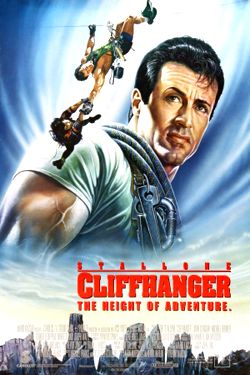
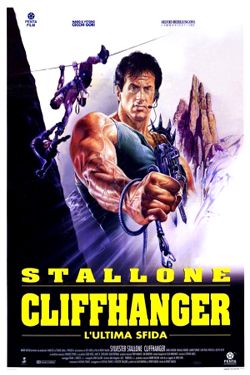
 And that vulnerable thread actually runs throughout the film. This isn't the type of character that Stallone or his action counterparts would play all that often; he's no tough-as-nails cop, no bad-ass soldier. He may be a tough, rugged mountain climber but he is also very human and is left completely shaken by the accident. It gives the character just a little bit more for Stallone to work with. And as a big fan of the man I think that he does a great job. Oh and as a little aside to that great opening set-piece, it's a scene which is hilariously spoofed by Jim Carrey and a racoon in Ace Ventura: When Nature Calls.
And that vulnerable thread actually runs throughout the film. This isn't the type of character that Stallone or his action counterparts would play all that often; he's no tough-as-nails cop, no bad-ass soldier. He may be a tough, rugged mountain climber but he is also very human and is left completely shaken by the accident. It gives the character just a little bit more for Stallone to work with. And as a big fan of the man I think that he does a great job. Oh and as a little aside to that great opening set-piece, it's a scene which is hilariously spoofed by Jim Carrey and a racoon in Ace Ventura: When Nature Calls.  ).
). 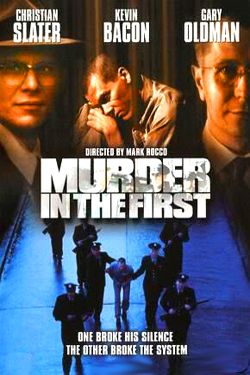
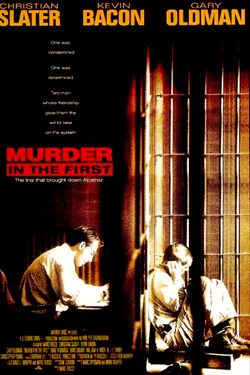
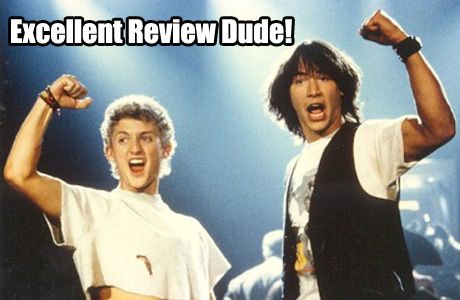

 That's a good line actually, wish I thought of it! Don't know if you read the review or not but think I commented about how it's a much more hammy, scenery-chewing performance than the quitely menacing, intense Trinity Killer.
That's a good line actually, wish I thought of it! Don't know if you read the review or not but think I commented about how it's a much more hammy, scenery-chewing performance than the quitely menacing, intense Trinity Killer. 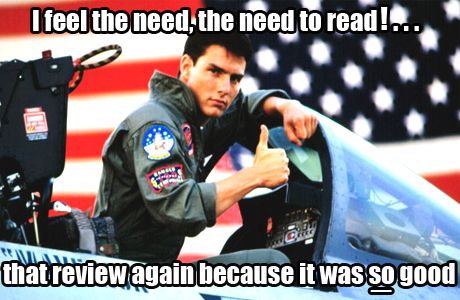
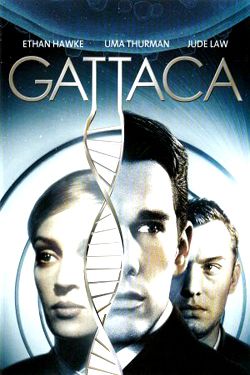
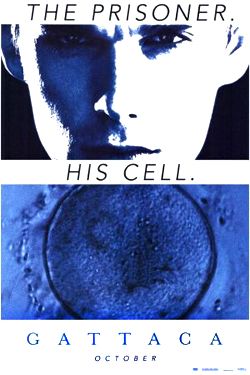

 Gattaca forgotten how many times i have watched it, just replaced it with Blu Ray copy
Gattaca forgotten how many times i have watched it, just replaced it with Blu Ray copy 
